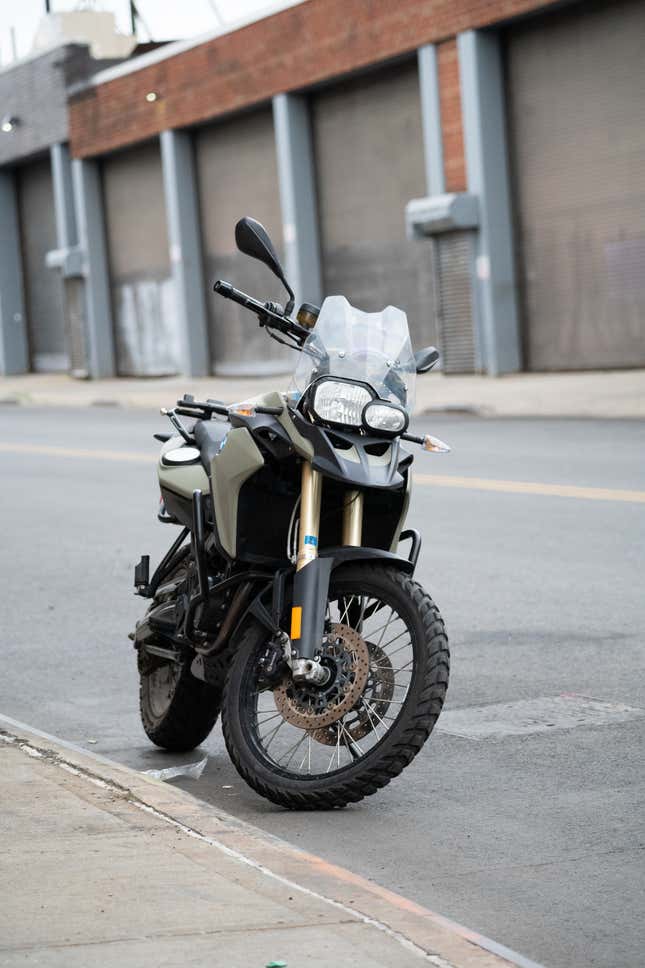Decade-Old BMW GS Project: There's No Shame In The Shop

When we last saw my F800GS project, things were looking dire. The bike was, to put it bluntly, deeply sketchy to ride. But I had a plan, a methodical approach to reduce the danger inherent in the bike by tackling its biggest issues first. This meant starting with the tires, tubes, wheel bearing, and head bearing.
It’s So Long To Steve’s BMW G 310 GS
So, I looked up how to swap out that head bearing. I found tutorials, service manuals, and YouTube mechanics all very helpfully telling me exactly where to apply a blowtorch to my BMW’s frame. This was when I realized I was out of my league, and decided to call a shop.
Photo: Steve DaSilva / Jalopnik
Yes, you could argue I took the easy way out. That real enthusiasts would work on the bike themselves, and would rather spend money on tools than on shop labor. But sometimes, going to the shop just makes more sense — and no one should ever be ashamed for it.
Everyone’s situation is different. For me, tool ownership comes with as many pros as cons: My 250-square-foot Brooklyn apartment is already pretty full, between my Craftsman mechanic tool set and my Ryobi duffel bag of power tools. I would love a garage full of tools, bearing pullers and blowtorches and the like, but that’s just not my situation right now.
I’m also wary of screwing things up. I’ve never pressed in a bearing before, and the last thing I want is to put one in crooked and have to waste more time and money ordering replacement parts — riding season’s wasting. Worse, I wouldn’t want to apply too much heat to the frame and mess up its paint, inviting all that northeast rust to come hang.
So, for Phase One of the F800GS repair, I paid a shop to do the work. This isn’t going to set the tone for the full project — I still plan to do the rest myself — but it’s enough to at least get the BMW roadworthy again. Which, of course, helps me diagnose the other issues.

Screenshot: Steve DaSilva / Jalopnik / Google Sheets
Which, of course, are plentiful. Turn signals are a new add, after I discovered that my day-one bike drop left the front-right signal on its last structural leg — a leg that has now broken. It’s dangling by its wires, which is what we in the biz call “not helpful.” It’s getting fixed with tape and armature wire until I can get some real replacements in.
Fluids are likely next on the list, since the rear brake fluid is concerningly dark and the transmission is concerningly bad at locating neutral. Hopefully, an oil change helps the gearbox, but it’s likely going to need some clutch adjustment too — not the end of the world, but another fix to add to the list. I’m also hoping the clutch plates themselves are in good shape, since I’d prefer to not shell out to replace those, too.

Photo: Steve DaSilva / Jalopnik
Taking the now-safer bike out yesterday let me hit some higher speeds as well, which revealed an odd rattle at high RPM. I’m gonna hope that’s nothing, for now. If I’m lucky, it’ll just be some part of the weird little phone mount arrangement vibrating itself to pieces on the bars.
So that’s the current state of the decade-old F800GS: Roadworthy, mostly, but in need of some serious maintenance. The next stage of fixes should be coming soon — and perhaps, even, a fun mod or two. Stay tuned.



